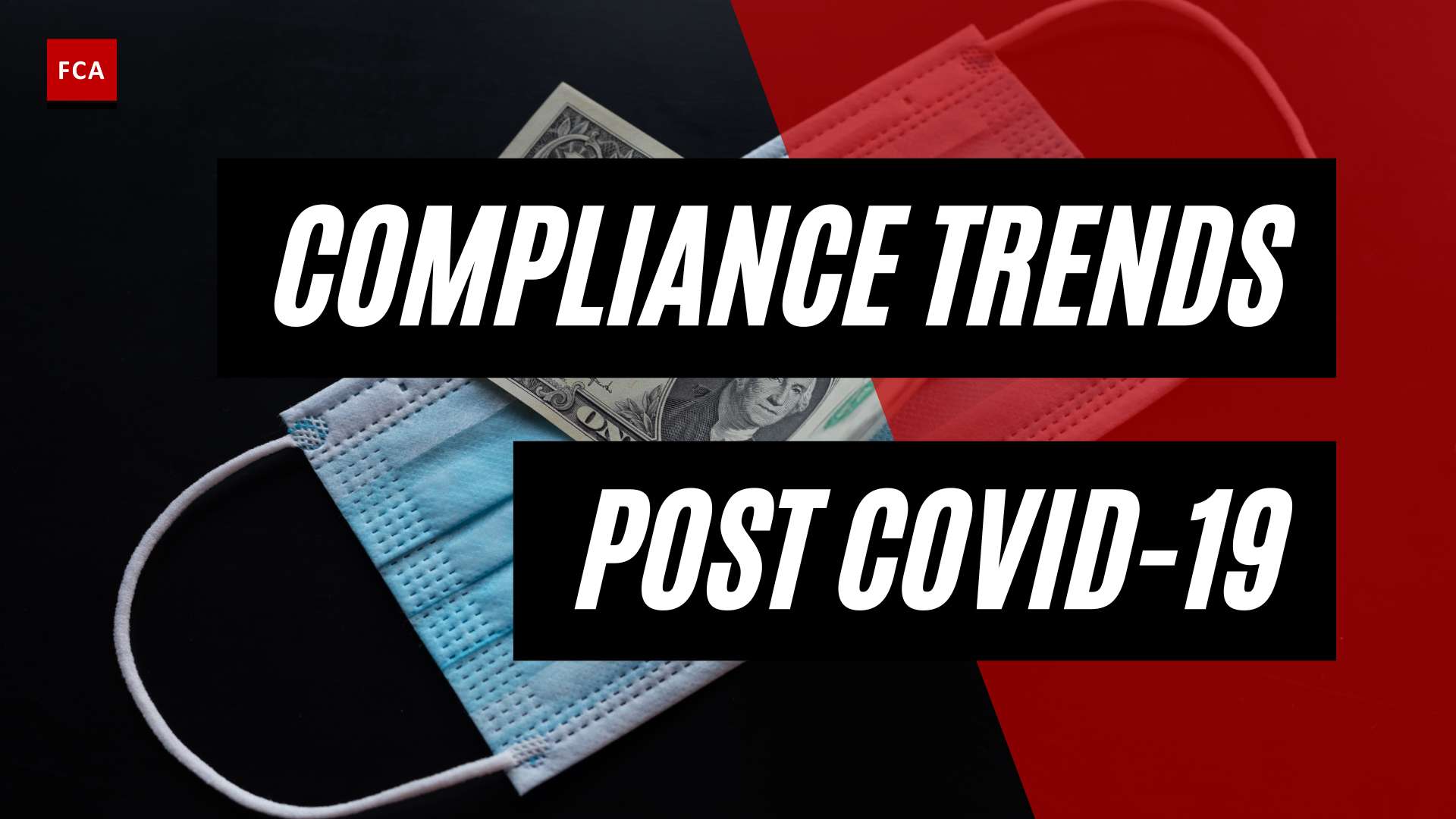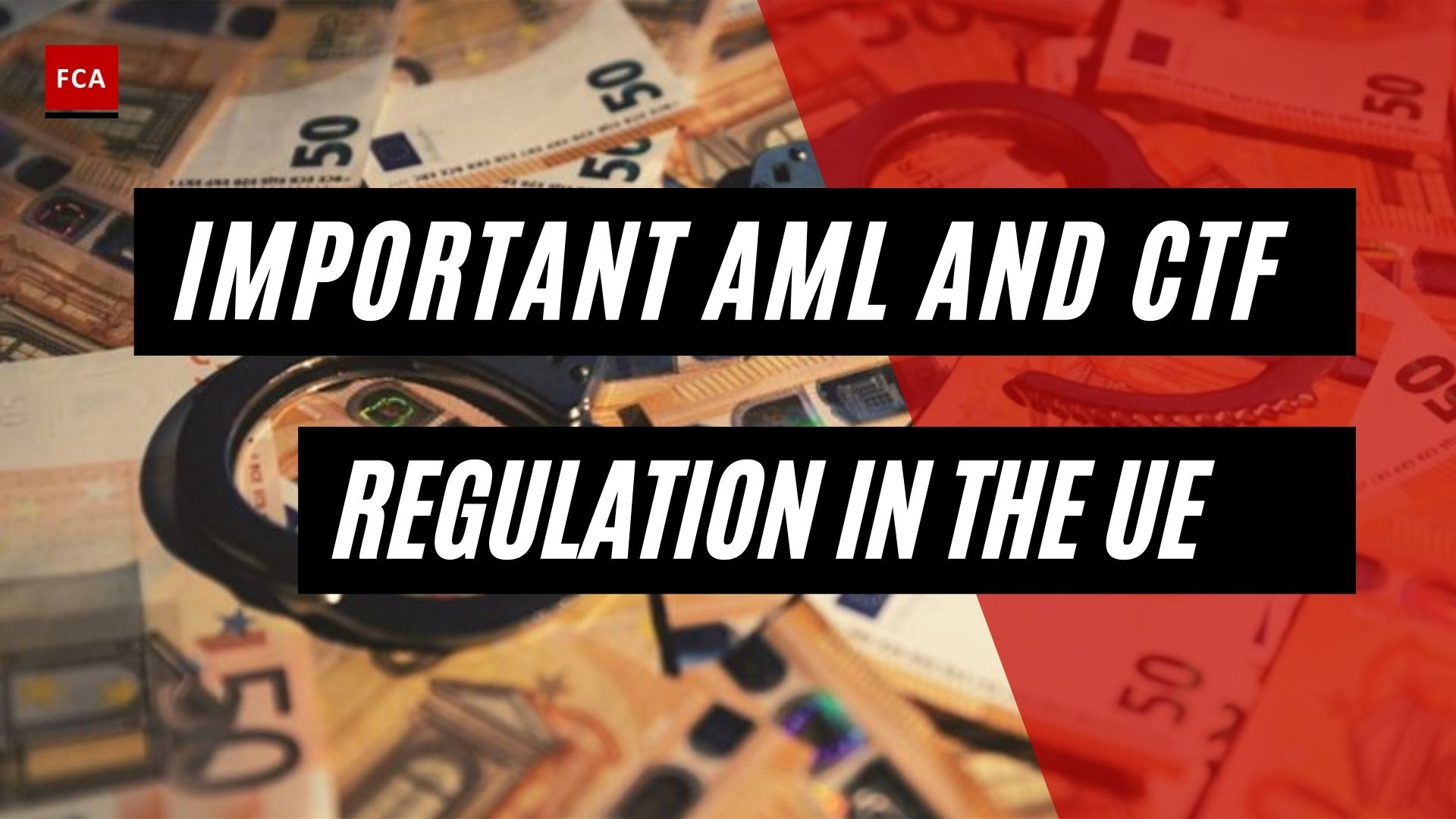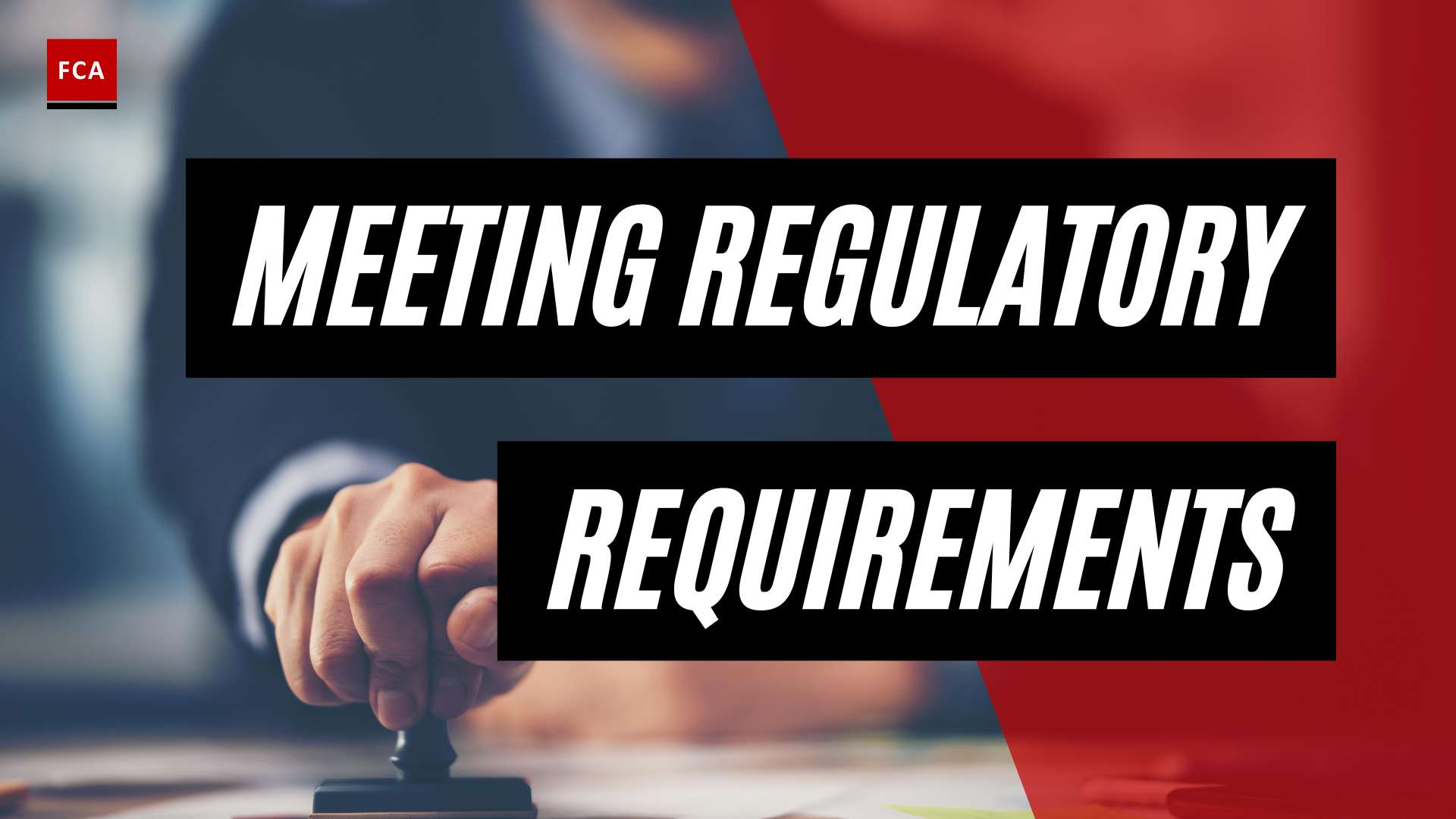Understanding AML Regulation
To combat the growing threat of money laundering and illicit financial activities, governments and regulatory bodies around the world have implemented Anti-Money Laundering (AML) regulations. These regulations aim to detect and prevent money laundering, terrorist financing, and other financial crimes. Understanding AML regulation is crucial for businesses to ensure compliance and mitigate risks.
Introduction to AML Regulation
AML regulations require businesses, particularly those operating in the financial sector, to establish robust frameworks and procedures to identify and prevent money laundering activities. One of the key aspects of AML regulation is the “Know Your Customer” (KYC) requirement. This mandates businesses to verify the identity of their customers and conduct due diligence to understand the nature of their transactions. Identity verification is a crucial component of AML compliance for financial institutions and investment-broker dealers.
However, AML regulation is not limited to financial institutions alone. All businesses, regardless of industry, need to conduct their due diligence on customers to protect themselves from fraud and data breaches. Identity verification is essential to maintain the integrity of customer relationships and safeguard against illicit activities. This means that even small businesses should be aware of and comply with AML regulations to protect their operations and reputations.
Importance of AML Compliance for Businesses
Complying with AML regulations is not just a legal obligation but also a necessity for businesses to maintain their integrity, protect their customers, and safeguard their operations. Failure to comply with AML regulations can have severe consequences for businesses, including financial penalties, reputational damage, and even criminal liability.
Financial institutions and businesses that deal with money movement, such as neobanks, fintech organizations, and those using credit cards, must implement robust KYC programs to protect client information and prevent identity fraud (Unit21). By adhering to AML regulations, businesses can establish trust and credibility with their customers and stakeholders.
Moreover, AML compliance helps businesses detect and prevent fraudulent activities, such as money laundering and terrorist financing. By implementing effective AML practices, businesses can contribute to the overall stability and integrity of the financial system.
In summary, understanding and adhering to AML regulations is of utmost importance for businesses. It ensures legal compliance, protects against financial and reputational risks, and fosters trust among customers and partners. By embracing AML compliance, businesses can demonstrate their commitment to combating financial crimes and contribute to a safer and more transparent financial environment.
Impact of AML Regulation on Businesses
The implementation of Anti-Money Laundering (AML) regulations has a significant impact on businesses, particularly in terms of financial consequences, reputational risks, and challenges in adapting to revised regulations.
Financial Consequences of Non-Compliance
Non-compliance with AML regulations can result in substantial financial penalties for businesses. According to the United Nations, an estimated $2 trillion is laundered globally every year, with less than 10% of that amount being detected and less than 1% of laundered funds being recovered (Unit21). Regulatory fines for non-compliance can be substantial, with the largest financial penalties reaching hundreds of millions of dollars. For example, HSBC was fined $1.9 billion in 2012 for AML violations, and Westpac faced a record $920 million fine in 2019.
In addition to regulatory fines, businesses may also face increased compliance costs associated with implementing robust AML measures. In 2020, an estimated $42 billion was spent globally on AML compliance, with individual institutions facing costs of up to $72 million annually (Financial Crime Academy). These costs encompass various aspects, including technology investments, staff training, and ongoing monitoring and reporting requirements.
Reputational Risks and Customer Trust
Non-compliance with AML regulations can also pose significant reputational risks to businesses. News of AML violations and associated penalties can damage a company’s reputation, leading to a loss of customer trust and potential business opportunities. Customers and business partners may be hesitant to engage with a company that has been implicated in money laundering activities or failed to meet compliance obligations.
Maintaining a strong reputation is crucial for businesses, particularly in industries where trust and integrity are paramount. Demonstrating a commitment to AML compliance not only helps safeguard the company’s reputation but also enhances customer trust and confidence in the business’s financial integrity.
Challenges in Adapting to Revised Regulations
Businesses face ongoing challenges in adapting to revised AML regulations. Regulatory requirements are continually evolving to keep pace with emerging money laundering techniques and the changing global landscape. Staying compliant with these evolving regulations requires businesses to invest in technology, staff training, and process enhancements.
One of the significant challenges is identity verification and Know Your Customer (KYC) requirements. Businesses must implement robust identity verification processes to ensure the accuracy and integrity of customer data. This includes verifying customer identities, conducting risk assessments, and performing ongoing monitoring to detect suspicious activities. Enhancing transaction monitoring systems is another challenge businesses must address to effectively identify and report potentially illicit activities.
Furthermore, businesses must navigate the complexities of adapting to revised regulations while maintaining a balance between compliance and customer experience. Striking this balance requires careful consideration of risk management practices, customer due diligence, and the implementation of effective KYC procedures.
In conclusion, AML regulations have a significant impact on businesses, with financial consequences, reputational risks, and challenges in adapting to revised regulations. To mitigate these impacts, businesses must invest in robust AML compliance measures, including enhanced identity verification processes, transaction monitoring systems, and continuous education and awareness programs. By prioritizing compliance, businesses can protect themselves from financial penalties, maintain a positive reputation, and build trust with their customers and stakeholders.
AML Compliance Challenges for Businesses
Ensuring compliance with anti-money laundering (AML) regulations poses several challenges for businesses. These challenges involve identity verification and Know Your Customer (KYC) requirements, enhancing transaction monitoring systems, and dealing with emerging financial products.
Identity Verification and KYC Requirements
Identity verification is a crucial aspect of AML compliance for businesses, particularly financial institutions and investment-broker dealers. These entities are required to follow “Know Your Customer” (KYC) regulations to prevent money laundering and financial crime (Unit21). However, identity verification is not limited to financial institutions alone. All businesses should conduct due diligence on their customers to protect themselves from fraud and data breaches.
To meet these requirements, businesses need to implement robust identity verification processes. This involves verifying customer identities using reliable and secure methods, such as document verification, biometric authentication, and data checks. Implementing a comprehensive KYC program helps protect customer information and the business from identity fraud. It is especially important for businesses in sectors such as neobanks, Fintech organizations, credit card usage, and the healthcare industry.
Enhancing Transaction Monitoring Systems
Transaction monitoring is a key component of AML compliance for businesses. It involves the regular monitoring and analysis of customer transactions to identify and report any suspicious activities. However, businesses often face challenges in enhancing their transaction monitoring systems to effectively detect such activities.
To address these challenges, businesses need to invest in advanced technologies such as artificial intelligence and machine learning. These technologies can improve the accuracy and efficiency of transaction monitoring processes, enabling businesses to identify suspicious patterns and potential money laundering activities. By leveraging these technologies, businesses can enhance their ability to detect and prevent financial crimes, ensuring compliance with AML regulations.
Dealing with Emerging Financial Products
The emergence of new financial products and services presents a significant challenge for AML compliance. Innovative products like cryptocurrencies and other digital assets have introduced new avenues for money laundering and financial crime. Businesses, especially financial institutions, must develop robust mechanisms to monitor and mitigate the associated risks while ensuring compliance with AML regulations.
To tackle this challenge, businesses need to stay updated on the latest trends and developments in the financial industry. They must adapt their AML compliance programs to address the specific risks posed by emerging financial products. This may involve implementing additional measures to monitor and analyze transactions involving these products, as well as ensuring compliance with regulatory requirements. By staying proactive and continuously assessing and adapting their AML compliance strategies, businesses can effectively address the challenges posed by emerging financial products.
Addressing the challenges of identity verification, enhancing transaction monitoring systems, and dealing with emerging financial products are crucial steps in achieving robust AML compliance for businesses. By implementing comprehensive identity verification processes, leveraging advanced technologies for transaction monitoring, and adapting to the changing landscape of financial products, businesses can navigate the complexities of AML regulations and ensure compliance.
Ensuring Effective AML Compliance
To effectively address the challenges of Anti-Money Laundering (AML) compliance, businesses must adopt strategies that strike a balance between compliance and customer experience. This section outlines three key aspects that contribute to ensuring effective AML compliance: striking the right balance, conducting robust internal audits and reviews, and promoting continuous education and awareness in AML.
Striking a Balance between Compliance and Customer Experience
For businesses, it is essential to strike a balance between AML compliance requirements and providing a positive customer experience. While stringent AML measures are necessary to prevent money laundering and other illicit activities, overly burdensome compliance procedures may lead to customer dissatisfaction. Businesses should aim to implement compliance measures that are effective yet efficient, minimizing the impact on customer experience.
By leveraging technology and automation, businesses can streamline their AML compliance processes. Robust Know Your Customer (KYC) procedures, such as identity verification and customer due diligence, can be integrated seamlessly into the customer onboarding journey. This ensures compliance without causing unnecessary delays or inconveniences for customers.
Importance of Robust Internal Audits and Reviews
Regular internal audits and reviews play a crucial role in ensuring AML compliance for businesses. By conducting comprehensive assessments of their AML programs, businesses can identify any potential weaknesses or areas of non-compliance. Internal audits help to evaluate the effectiveness of internal controls, policies, and procedures, and identify areas for improvement.
These audits should be conducted by knowledgeable and independent personnel to ensure objectivity and thoroughness. The findings from internal audits can inform the implementation of corrective measures and the enhancement of AML compliance programs. It is essential for businesses to allocate adequate resources and personnel for conducting regular internal audits and reviews.
Continuous Education and Awareness in AML
In the ever-evolving landscape of AML regulations, continuous education and awareness are vital for businesses to stay up to date with the latest requirements. AML compliance professionals should continually educate themselves on regulatory changes, emerging trends, and best practices in the field. This knowledge empowers businesses to adapt their compliance programs and effectively address evolving risks.
Businesses should invest in training programs and resources to educate their employees about AML compliance obligations and the importance of their roles in preventing money laundering and other financial crimes. By fostering a culture of compliance and providing ongoing training, businesses can ensure that their employees are equipped with the necessary knowledge and skills to fulfill their AML responsibilities.
By striking a balance between compliance and customer experience, conducting robust internal audits and reviews, and promoting continuous education and awareness in AML, businesses can enhance their AML compliance efforts. These measures contribute to mitigating the risks associated with money laundering and maintaining the integrity of the financial system.
The Global Landscape of AML Compliance
In the ever-evolving world of anti-money laundering (AML) compliance, businesses face numerous challenges on a global scale. Understanding the global landscape of AML compliance is crucial for organizations striving to meet regulatory requirements and combat financial crime effectively. This section explores three key aspects: collaboration and information sharing, cross-border compliance challenges, and the scarcity of skilled AML professionals.
Collaboration and Information Sharing
Collaboration and information sharing between financial institutions and regulatory authorities play a vital role in effective AML compliance. However, several challenges hinder this process. Concerns about legal liability and reputational risks may cause hesitancy among institutions to share information. On the other hand, regulatory authorities may face resource limitations that impede their ability to analyze the provided data effectively. Overcoming these challenges requires fostering a culture of cooperation and establishing frameworks that prioritize information sharing while addressing legal and reputational concerns (Sanction Scanner).
Cross-Border Compliance Challenges
For businesses operating across borders, complying with varying AML regulations can be a complex and demanding task. Each jurisdiction has its own unique set of AML compliance standards, requiring financial institutions to navigate and adhere to different regulatory frameworks. This necessitates comprehensive governance and diligence procedures to ensure compliance in diverse locations. Implementing robust cross-border compliance measures, such as standardized risk assessment frameworks and enhanced due diligence processes, is essential to meet the requirements of multiple jurisdictions (Sanction Scanner).
Scarcity of Skilled AML Professionals
The shortage of skilled AML professionals poses significant challenges for businesses in their compliance efforts. This scarcity of qualified individuals affects recruitment, retention, and training within the industry. The demand for experienced AML professionals is high, leading to increased competition among organizations. Onboarding costs and turnover rates further add to the challenges. Additionally, ensuring continuous education and awareness of evolving regulatory obligations is crucial to equip professionals with the necessary skills to tackle emerging AML threats effectively.
By addressing these challenges in collaboration, organizations can strengthen their AML compliance efforts and mitigate the risks associated with financial crime. Implementing efficient information-sharing mechanisms, establishing cross-border compliance frameworks, and investing in the development and retention of skilled AML professionals are essential steps toward achieving effective AML compliance on a global scale.
Protecting Businesses from AML Fines
In order to protect businesses from the financial and reputational consequences of non-compliance with Anti-Money Laundering (AML) regulations, it is crucial to implement effective measures. This section explores three key strategies that businesses can employ to safeguard against AML fines: conducting regular risk assessments, monitoring and reporting suspicious activities, and implementing effective Know Your Customer (KYC) procedures.
Conducting Regular Risk Assessments
Conducting regular risk assessments is a fundamental step for businesses to identify specific risks related to money laundering and other illegal financial activities. Risk assessments enable companies to evaluate their vulnerabilities and develop and implement effective risk mitigation strategies. By understanding the potential risks they face, businesses can allocate resources appropriately and implement preventive measures to minimize their exposure to money laundering risks.
During the risk assessment process, businesses should consider factors such as their customer base, geographical locations, products and services, and transaction volume. This comprehensive evaluation allows for the identification of high-risk areas and enables the implementation of targeted controls and enhanced due diligence measures where necessary. Regularly reviewing and updating risk assessments ensures that businesses stay proactive in their approach to AML compliance.
Monitoring and Reporting Suspicious Activities
Monitoring and reporting suspicious activities play a crucial role in detecting potential money laundering or criminal activities. By implementing robust transaction monitoring systems, businesses can analyze customer transactions, identify unusual patterns or behaviors, and promptly report any suspicious activities to the appropriate authorities. This proactive approach not only helps businesses comply with AML regulations but also contributes to the collective effort in combating financial crimes (Sanction Scanner).
To effectively monitor transactions, businesses should establish comprehensive monitoring mechanisms that include real-time transaction monitoring, automated alerts for suspicious activities, and the ability to conduct thorough investigations. Additionally, maintaining accurate records of monitoring activities and reporting processes is essential for demonstrating compliance and facilitating audits.
Implementing Effective KYC Procedures
Implementing effective Know Your Customer (KYC) procedures is a critical component of AML compliance for businesses. KYC procedures involve verifying the identities of customers, assessing their risk profiles, and conducting ongoing due diligence to ensure that businesses do not facilitate money laundering or other illicit financial activities. By implementing robust KYC procedures, businesses can minimize the risk of being exploited for money laundering purposes and enhance their overall AML compliance efforts (Sanction Scanner).
Effective KYC procedures typically include identity verification, customer risk profiling, and ongoing monitoring of customer activities. By verifying the identity of customers and conducting risk-based due diligence, businesses can gain insights into the legitimacy and potential risks associated with their customers. This enables businesses to tailor their risk mitigation measures accordingly, ensuring compliance with AML regulations.
By diligently implementing these protective measures, businesses can enhance their AML compliance efforts and minimize the risk of facing significant fines and reputational damage. Regular risk assessments, vigilant monitoring and reporting of suspicious activities, and robust KYC procedures are essential pillars in the fight against money laundering and other illicit financial activities.
Key AML Compliance Laws and Directives
To effectively address anti-money laundering (AML) challenges, businesses must have a comprehensive understanding of the key AML compliance laws and directives that govern their operations. The following laws and directives play a critical role in shaping AML compliance efforts:
Financial Action Task Force (FATF) Standards
The Financial Action Task Force (FATF), established in 1989, functions as a global regulatory body with 39 member countries. It sets international standards for AML compliance programs and has the authority to impose fines and sanctions on entities or individuals not meeting AML obligations. The FATF standards emphasize a risk-based approach, customer due diligence, record-keeping for five years, controls for Politically Exposed Persons (PEPs), and reporting of suspicious transactions. Adhering to these standards is crucial for businesses to ensure compliance and mitigate the risks associated with money laundering and terrorist financing. For more information, visit the FATF website.
The 6th Anti-Money Laundering Directive (6AMLD)
The 6th Anti-Money Laundering Directive (6AMLD) represents a significant advancement in the European Union’s fight against money laundering and terrorist financing. Implemented in October 2018, it became effective on December 3, 2020. The directive aims to prevent and detect financial crimes by broadening the definition of money laundering, imposing stricter penalties, establishing central registers for beneficial ownership, and identifying 22 predicate offenses related to money laundering. 6AMLD applies to various entities, including financial institutions, virtual asset service providers, tax advisors, and auditors. It is important for businesses operating within the European Union to familiarize themselves with the provisions of 6AMLD and ensure compliance. Stay updated on any refinements or future directives, such as the upcoming 7th Anti-Money Laundering Directive (7AMLD), which will further enhance the legal framework. For more information, refer to the official EU legislation.
The Bank Secrecy Act (BSA) in the United States
The Bank Secrecy Act (BSA), overseen by the Financial Crimes Enforcement Network (FinCEN), is a crucial anti-financial crime law in the United States. The BSA mandates that financial institutions maintain detailed records of client identities and transactions to combat money laundering and other illicit activities. Non-compliance with AML requirements or intentional neglect can result in severe penalties, including fines of up to $250,000 or imprisonment for up to five years. The BSA reflects the determination of the U.S. government to address AML and financial crime effectively. Businesses operating within the United States should ensure strict adherence to the BSA and stay updated on any regulatory changes or guidance issued by FinCEN. For more information, visit the FinCEN website.
Understanding and complying with these key AML compliance laws and directives is crucial for businesses to mitigate the risks associated with money laundering, terrorist financing, and other financial crimes. By staying informed and implementing robust AML compliance programs, businesses can protect themselves and contribute to the global efforts against illicit activities.
Tools and Solutions for AML Compliance
To effectively address the challenges of anti-money laundering (AML) compliance, businesses can leverage various tools and solutions, including advanced technology and software solutions. These resources play a crucial role in enhancing AML compliance efforts and mitigating the risks associated with financial crimes.
The Role of Technology in AML Compliance
Technology plays a pivotal role in enabling businesses to meet AML compliance requirements effectively. With the increasing complexity and volume of financial transactions, manual processes alone are no longer sufficient to detect and prevent money laundering. By harnessing the power of technology, businesses can enhance their AML compliance efforts in several ways:
-
Risk Assessment: Advanced software solutions can assist businesses in conducting accurate risk assessments, enabling them to identify and understand the potential AML risks associated with their customers and transactions. These tools provide insights into customer risk profiles, helping businesses implement appropriate mitigation strategies and allocate resources effectively.
-
Customer Due Diligence (CDD): Technology-driven solutions streamline the CDD process, enabling businesses to verify the identity of their customers, assess their risk levels, and monitor their activities more efficiently. These tools automate the collection and analysis of customer data, ensuring compliance with AML regulations and facilitating the identification of suspicious activities.
-
Transaction Monitoring: Implementing robust transaction monitoring systems is crucial for identifying and reporting suspicious activities. Technology solutions, such as artificial intelligence and machine learning algorithms, enhance the accuracy and efficiency of transaction monitoring processes. These tools can analyze large volumes of data, detect patterns, and flag potential red flags or unusual transactions, enabling businesses to take appropriate action promptly.
-
Record-Keeping: AML compliance requires businesses to maintain comprehensive records of their AML activities and transactions. Technology solutions provide secure and centralized platforms for record-keeping, ensuring easy access, retrieval, and retention of relevant information. This helps businesses comply with record-keeping requirements and facilitates audits and regulatory reviews.
-
Sanctions Screening: With the constantly evolving sanctions lists, businesses need to regularly screen their customers and transactions against these lists to ensure compliance. Technology solutions automate the sanctions screening process, allowing businesses to efficiently identify and mitigate risks associated with sanctioned individuals, entities, or countries.
-
Regulatory Updates: Staying up-to-date with changing AML regulations is crucial for businesses. Technology-driven compliance solutions provide real-time updates on regulatory requirements, helping businesses adapt their AML processes and policies accordingly.
Sanction Scanner: Enhancing AML Compliance
One notable software solution in the field of AML compliance is Sanction Scanner. Sanction Scanner offers a range of features and functionalities to aid businesses in adhering to AML laws and regulations. Its comprehensive suite of tools includes risk assessment, customer due diligence, transaction monitoring, record-keeping, sanctions screening, and regulatory updates.
By utilizing Sanction Scanner, businesses can streamline their AML compliance efforts and ensure adherence to regulatory requirements. The software enables organizations to accurately assess customer risk profiles, detect suspicious activities, maintain records, comply with sanctions lists, and stay updated with regulatory requirements. These capabilities enhance businesses’ ability to combat financial crimes effectively and maintain a robust AML compliance framework.
As businesses navigate the complex landscape of AML compliance, leveraging technology solutions like Sanction Scanner can significantly enhance their capabilities. By automating and optimizing critical compliance processes, businesses can minimize the risks associated with money laundering, protect their reputation, and ensure a strong culture of compliance.
AML Compliance Challenges for Businesses
Ensuring compliance with Anti-Money Laundering (AML) regulations poses several challenges for businesses. These challenges encompass identity verification, transaction monitoring, and keeping up with emerging financial products. Let’s delve into each of these challenges in more detail.
Identity Verification and KYC Requirements
Identity verification is a crucial aspect of AML compliance for all businesses, not just financial institutions. The “Know Your Customer” (KYC) regulations necessitate businesses to conduct due diligence on their customers to protect themselves from fraud and data breaches. Any company that deals with money movement should consider implementing a comprehensive KYC program, including neobanks, fintech organizations, credit card users, and healthcare industry businesses (Unit21).
Enhancing identity verification processes involves obtaining accurate customer information, verifying that information through reliable sources, and ensuring compliance with privacy regulations. These measures help businesses mitigate the risk of identity fraud and money laundering.
Enhancing Transaction Monitoring Systems
Transaction monitoring is a critical component of AML compliance. Businesses must implement robust systems to detect and report suspicious activities effectively. Banks, in particular, are required to have policies, procedures, and processes that ensure timely generation, review, and response to reports identifying unusual activities.
To enhance transaction monitoring systems, businesses need to cover areas posing money laundering and terrorist financing risks, such as currency activity, funds transfer, ATM transactions, and large item reports. These systems should be evaluated based on the institution’s risk profile, transaction volume, and staffing sufficiency (FFIEC). Ensuring that unusual activity from all business lines is appropriately referred for evaluation, considering all available Customer Due Diligence (CDD) and Enhanced Due Diligence (EDD) information, is crucial in decision-making regarding Suspicious Activity Reports (SARs).
Dealing with Emerging Financial Products
The constantly evolving landscape of financial products presents a challenge for businesses in terms of AML compliance. Criminals continuously find new ways to launder money, utilizing methods such as shell companies, offshore accounts, and digital currencies to disguise the origin of funds. They may employ intricate transactions like layering and integration to complicate the detection and prevention of money laundering activities (Sanction Scanner).
To address this challenge, businesses must stay informed about emerging financial products and their associated risks. Implementing robust risk assessment procedures and conducting thorough due diligence on new products can help identify potential vulnerabilities to money laundering activities. Collaborating with regulatory authorities, industry associations, and technology providers can also assist businesses in keeping pace with emerging financial products and their compliance requirements.
By recognizing and addressing these AML compliance challenges, businesses can establish effective measures to combat money laundering and protect themselves from financial and reputational harm. Implementing strong identity verification processes, enhancing transaction monitoring systems, and staying vigilant about emerging financial products are crucial steps toward maintaining AML compliance.









